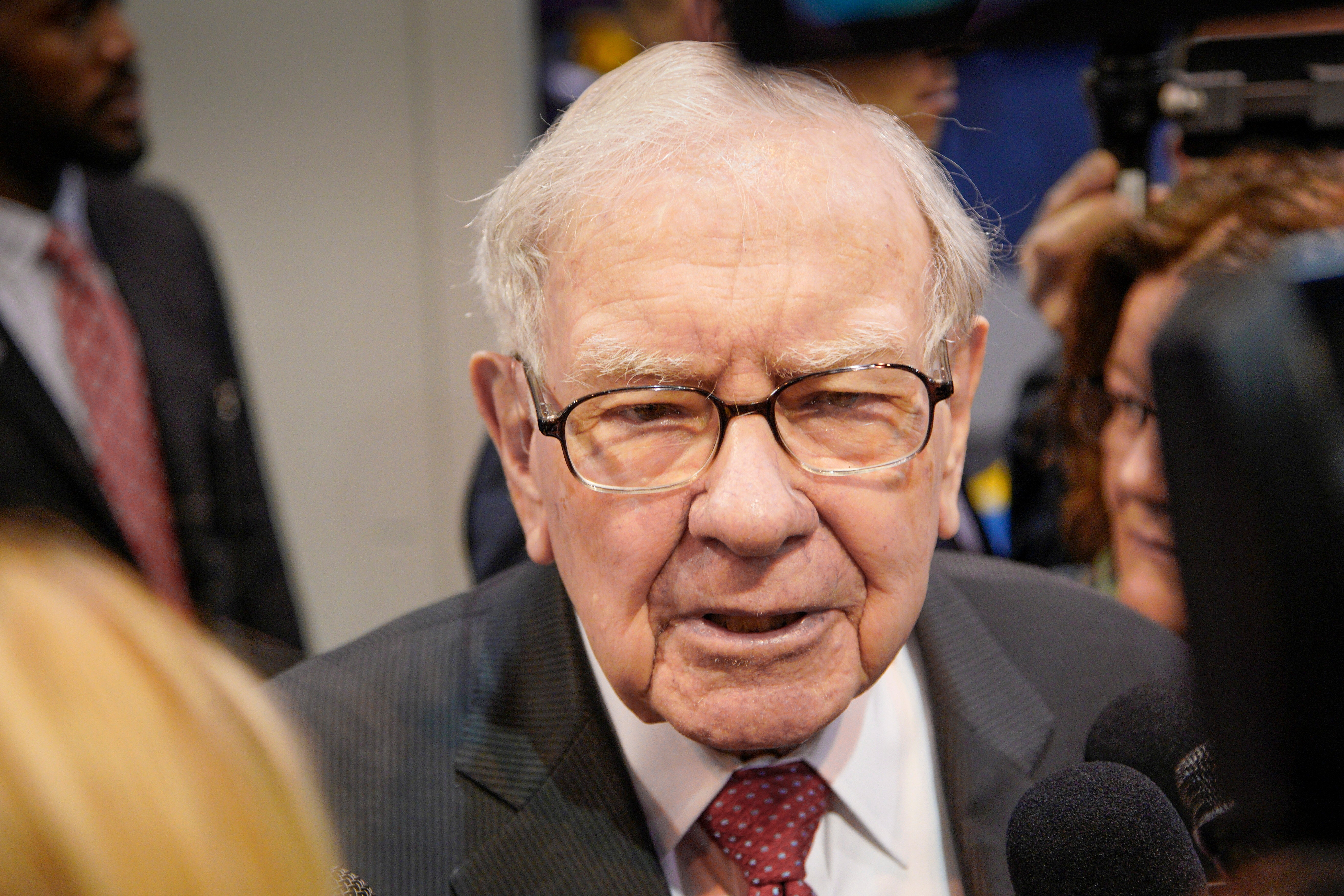A collection of the insights Warren Buffett offered in his annual letter Saturday
Billionaire Warren Buffett is known as one of the world’s greatest investors, and the 93-year-old has a devout following of people who admire his track record and appreciate his sage advice on life and investing

Billionaire Warren Buffett is known as one of the world's greatest investors, and the 93-year-old has a devout following of people who admire his track record and appreciate his sage advice on life and investing.
Buffett's latest annual letter to Berkshire Hathaway shareholders released Saturday morning was filled with a mix of both.
On investing in stocks:
“I can’t remember a period since March 11, 1942 – the date of my first stock purchase – that I have not had a majority of my net worth in equities, U.S.-based equities. And so far, so good. The Dow Jones Industrial Average fell below 100 on that fateful day in 1942 when I ‘pulled the trigger.’ I was down about $5 by the time school was out. Soon, things turned around and now that index hovers around 38,000. America has been a terrific country for investors. All they have needed to do is sit quietly, listening to no one.”
___
On picking winners:
“Our goal at Berkshire is simple: We want to own either all or a portion of businesses that enjoy good economics that are fundamental and enduring. Within capitalism, some businesses will flourish for a very long time while others will prove to be sinkholes. It’s harder than you would think to predict which will be the winners and losers. And those who tell you they know the answer are usually either self-delusional or snake-oil salesmen.”
___
On market panics:
“Markets can – and will – unpredictably seize up or even vanish as they did for four months in 1914 and for a few days in 2001. If you believe that American investors are now more stable than in the past, think back to September 2008. Speed of communication and the wonders of technology facilitate instant worldwide paralysis, and we have come a long way since smoke signals. Such instant panics won’t happen often – but they will happen.
"Berkshire’s ability to immediately respond to market seizures with both huge sums and certainty of performance may offer us an occasional large-scale opportunity. Though the stock market is massively larger than it was in our early years, today’s active participants are neither more emotionally stable nor better taught than when I was in school. For whatever reasons, markets now exhibit far more casino-like behavior than they did when I was young. The casino now resides in many homes and daily tempts the occupants.”
___
On Berkshire's prospects, for shareholders like his sister, Bertie:
“Berkshire should do a bit better than the average American corporation and, more important, should also operate with materially less risk of permanent loss of capital. Anything beyond “slightly better,” though, is wishful thinking. This modest aspiration wasn’t the case when Bertie went all-in on Berkshire – but it is now.”
___
On his favorite oil investment:
“At yearend, Berkshire owned 27.8% of Occidental Petroleum’s common shares and also owned warrants that, for more than five years, give us the option to materially increase our ownership at a fixed price. Though we very much like our ownership, as well as the option, Berkshire has no interest in purchasing or managing Occidental. We particularly like its vast oil and gas holdings in the United States, as well as its leadership in carbon-capture initiatives, though the economic feasibility of this technique has yet to be proven. Both of these activities are very much in our country’s interest.”
___
On Charlie Munger’s contributions to Berkshire’s success shifting from a textile mill to today’s conglomerate:
“He told me – correctly! – that I had made a dumb decision in buying control of Berkshire. But, he assured me, since I had already made the move, he would tell me how to correct my mistake. In what I next relate, bear in mind that Charlie and his family did not have a dime invested in the small investing partnership that I was then managing and whose money I had used for the Berkshire purchase.
"Moreover, neither of us expected that Charlie would ever own a share of Berkshire stock. Nevertheless, Charlie, in 1965, promptly advised me: `Warren, forget about ever buying another company like Berkshire. But now that you control Berkshire, add to it wonderful businesses purchased at fair prices and give up buying fair businesses at wonderful prices. In other words, abandon everything you learned from your hero, Ben Graham. It works but only when practiced at small scale.' With much back-sliding I subsequently followed his instructions.”
___
For more AP coverage of Warren Buffett look here: https://apnews.com/hub/warren-buffett or see Berkshire Hathaway news here: https://apnews.com/hub/berkshire-hathaway-inc
Bookmark popover
Removed from bookmarks